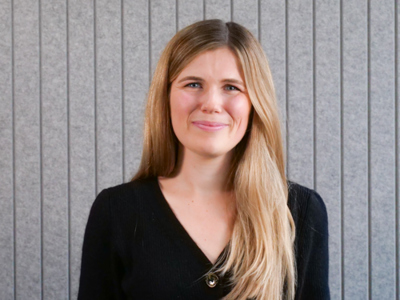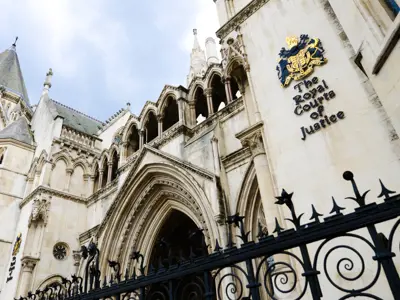
Sheffield Hallam University, recognising its failure to protect academic freedom, reverses research ban on forced labour in China
Professor of Human Rights and Contemporary Slavery, Dr, Laura Murphy, has secured a pledge to protect her academic freedom from Sheffield Hallam University (SHU) after documents revealed that for nearly two years, the university had acceded to pressure by a Chinese Government foreign intelligence service to curtail her research into forced labour.
Posted on 03 November 2025
Internal university documents reveal that SHU had banned her from continuing research on forced labour, including into supply chains in China’s critical minerals and advanced technology sectors.
SHU initially denied there was a ban on her work. However, following the intervention of human rights lawyers at law firm Leigh Day, the University has now issued Professor Murphy with assurances that her academic freedom will be protected.
A professor at the Helena Kennedy Centre for International Justice at SHU, Murphy has published numerous reports on the links between forced labour in the Xinjiang Uyghur Autonomous Region (XUAR) and global supply chains in industries including cotton, solar panels and car manufacture. Murphy is recognised globally for her work on forced labour and contemporary slavery.
China rejects accusations of forced labour in the XUAR.
Murphy’s team’s research was cited by the US government when it stopped all imports from the XUAR, and enacted specific legislation: the Uyghur Forced Labour Prevention Act in 2021. Murphy’s research has also been cited in the UK and European Parliaments, and in 2023 she was named “Champion of the Year” by the Human Trafficking Legal Center.
From November 2023 to January 2025, Murphy took a career break from SHU to work for the US government, serving as a senior policy advisor tasked with supporting the implementation of the Uyghur Forced Labour Prevention Act.
On her return to SHU in 2025, she says she was told by SHU that the university was no longer permitting any research on forced labour or on China and that significant restrictions were to be placed on her work outside of the University. She was also told that she should consider changing her field of research, as it was unlikely that the University would be able to support any research on forced labour, or China, in the near future.
Professor Murphy instructed human rights lawyers Tessa Gregory and Claire Powell at Leigh Day.
In correspondence, including a letter sent under the pre-action protocol for judicial review, Leigh Day outlined concerns that SHU appeared to be in breach of the Higher Education (Freedom of Speech) Act 2023, the Employment Act 1986 and Murphy’s right to freedom of expression under the European Convention on Human Rights. They also suggested that SHU’s actions were unreasonable and asked SHU to confirm the precise restrictions it was trying to impose on Murphy’s work and how these restrictions were lawful in consideration of their legal duties. SHU failed to provide a detailed response or a proper explanation for its conduct over the past two years.
Documents released by SHU under a “Subject Access Request” and “Freedom of Information” request showed that the University had, in response to direct threats from the Chinese “National Security Service,” placed restrictions on Murphy’s research, removed her work and that of the “Forced Labour Lab” (started by Professor Murphy) from the University website and halted plans to publish a funded research project. The documents indicated that these decisions were made in the context of the People’s Republic of China (PRC) government blocking SHU’s website and email addresses from being accessed within China, and a resulting (or anticipated) decline in business from China for SHU.
The documents reveal that the PRC intelligence service explicitly confirmed that they had blocked SHU’s access to the internet in China in response to the Forced Labour Lab publications exposing human rights violations in the XUAR.
Shortly after these documents were released, SHU reversed its decision regarding Professor Murphy’s research and indicated that no specific restrictions will be applied to her research, though they have proposed new processes for research review that have yet to be determined. The University also apologised to Murphy for some of their communications and has stated it is committed to upholding and defending the academic freedom of its staff.
Professor Laura Murphy said:
“We cannot have UK universities acting as the long arm of the PRC government, assisting it in its attempts to silence criticism of its crimes against the Uyghurs, Tibetans, Hong Kongers, and others. We have to recognise that as long as UK universities are so desperately underfunded, however, they will always be vulnerable to this kind of influence.
The PRC’s human rights violations in the Uyghur Region continue unabated, and it’s imperative that the academic community persist in conducting rigorous research that sheds light on what is happening. Now that the university has given me the greenlight to continue my research, I’m looking forward to pursuing new projects on emerging technology and critical infrastructure supply chains affected by Uyghur forced labour.”
Leigh Day solicitor, Claire Powell said:
“Professor Murphy’s academic freedom has been repeatedly and unlawfully restricted over the past two years. The documents uncovered paint an extremely concerning picture of a university responding to threats from a foreign state security service by trading the academic freedom of its staff for its own commercial interests. The UK government and the higher education sector must work together to resist such threats and protect the fundamental rights and freedoms of staff and students.”
Darryl Hutcheon of Matrix Chambers is instructed as counsel.
The initial stage of the case was supported by funding from Law for Change.




